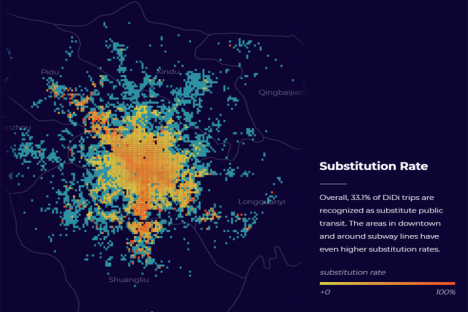
Ride-sharing apps like Uber, Lyft, Grab, and DiDi have become ubiquitous in cities around the world, but have also attracted much backlash from established taxi companies. Despite its adoption worldwide, regulation of ride-sourcing services still varies greatly in different parts of the world, as policymakers struggle to assess its impact on the economy and society with limited information and yet-unidentified risks involved. One major consideration to improve mobility and sustainability in cities is whether ride-sourcing apps serve as a substitute or complement for public transit. In an ideal situation, ride-sharing…



